It’s not an image that you can ever unsee. Those amber eyes, that wriggling nose, the soft paw in your palm, that telepathic message, Please, Take Me Home!
You’re not standing at the window of an unscrupulous pet mill. Instead, you went for a stroll at your local mall and are facing a famous pet store. They wouldn’t, you argue with yourself, sell puppy farm dogs, would they?
Truth is, there are pet store chains that groom small dogs so they look presentable. People don’t see the scars beneath the fur in that momentary interaction. The Humane Society and other rescue groups combat these puppy mill breeders and ask that you rethink your purchase.
HSUS encourages you to buy from reputable breeders or, better yet, work with animal welfare groups and adopt or foster. These organizations and WAF (World Animal Foundation) want to help you understand.
Here’s how to avoid puppy mill dogs.
Puppy Mills Definition
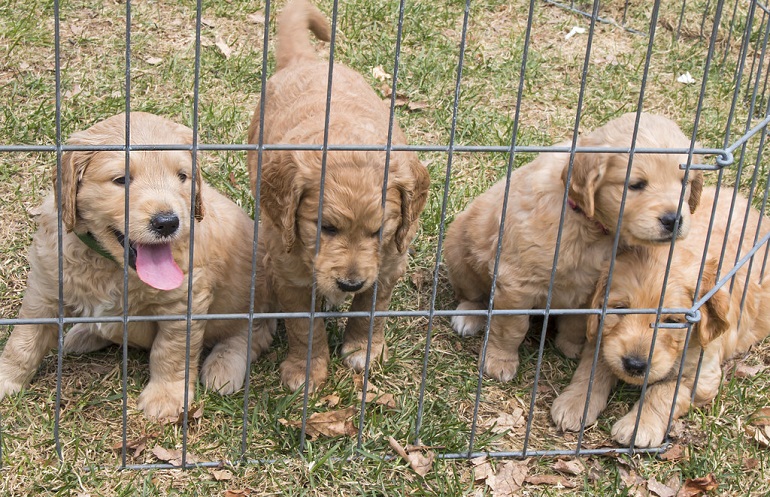
Sometimes called puppy mills or farms, these facilities churn out puppy mill dogs of every conceivable flavor, like the Willy Wonka Chocolate Factory churns out pralines. There is no winning gift certificate inside these poor puppies and breeding parents living in horrendously cruel conditions.
And therein is the real problem. Most states and countries are a few centuries behind in protecting the welfare of puppy mill products. These laws neglect the breeding parents that are penned 24/7 in inhumane cages without proper medical attention, below-grade food, and absolutely no shred of human kindness.
Many people find it shocking that puppy mills are not illegal. These puppy facilities can operate under vague and uncensored guidelines. After learning about the substantial data on inhumane practices in puppy mill stats would certainly leave you feeling devastated.
The HSUS defines puppy mills in these terms:
Puppy mills confine breeding females into cages, often with wire flooring, without any human kindness or access to socialization with other dogs (not that these dogs have any experience with what that means). Once a female or male from the breeding stock no longer produces, they’re discarded like trash or killed.
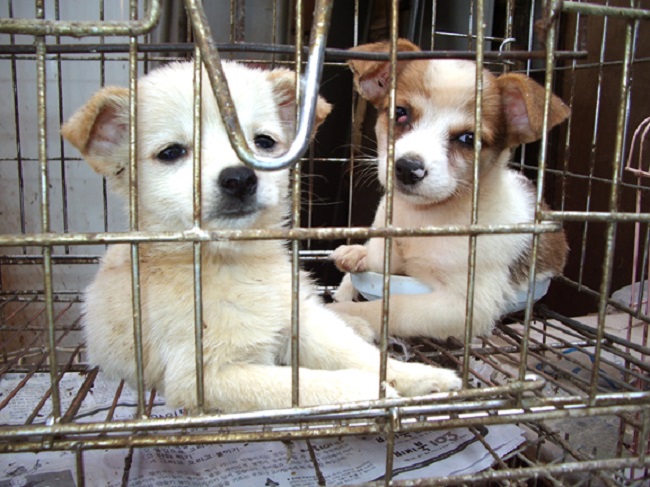
Pull mill farms stack dogs in rows of wire or cage kennels where the distressed animals can’t ever relax. The problem with puppy mill breeders is so bad; according to HUSU, there is The Horrible Hundred List.
The unsanitary condition, the absence of veterinary attention, and continuous overbreeding create puppies that endure health conditions that they then bring into the homes of loving animal parents. Pet owners are left to cope with medical costs and behavioral issues.
Innocent people who want to do the right thing with these puppies perpetuate the cycle. The only winners are the greedy puppy farm owners.
However, we encourage you to read more about are puppy mills illegal to understand the dilemma. We also want to make a difference by educating and advocating for these unheard voices.
How To Spot a Puppy Mill
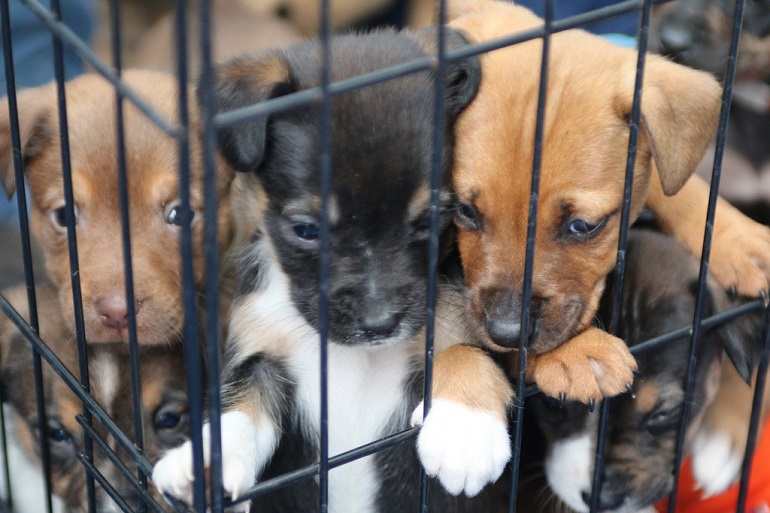
First, you need to know that one of the big pet stores serving your neighborhood still sells puppy mill products. That store is Petland and remains on the HSUS radar for being the largest retailer of puppy mill dogs.
Prospective animal owners must consider these essential criteria to differentiate between puppy mill dog breeders and legitimately responsible breeders:
Ask to Visit the Facility
Demand to meet the parents and siblings of the puppy you found they advertised online, in the paper, or on some community bulletin board. Reputable breeders want you to see how they operate, meet their other dogs, and meet you as a pet parent.
Ask What Type of Breeds They Have Available for Sale
A puppy farm breeder more than likely has several popular and in-demand designer breeds for sale. Reputable breeders typically only have one or two. They believe in the registered breed of their choice and want to develop the best of the breed.

Since designer breeds like Labradoodles, Cockapoos, or Cavapoos are trendy, reputable breeders might also have puppies from a couple of breeding dogs, again breeding the best in young puppies.
Be Diligent in Verifying the Breeder Details
Sad but true, use a Google reverse search for phone numbers. See how often the number pops up and if it matches the seller’s location. Cross reverence adverts against offers from different breeds.
Check Puppy Health Records
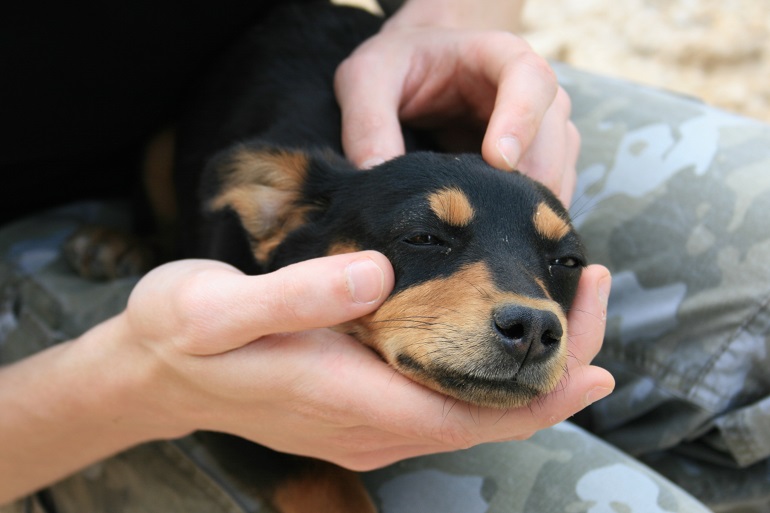
In today’s environment, many legit breeders use online services and ship the puppy, often with a nanny* service to you. Anyone can hire a website developer with fake images and info. If distance prevents you from going in person, ask for a live video visit. People, we have the technology.
About Shipping Puppies
Ideally, you’ll be driving to pick up the puppy. Flying can be traumatic for pets, and responsible breeders don’t ship the puppy as cargo.
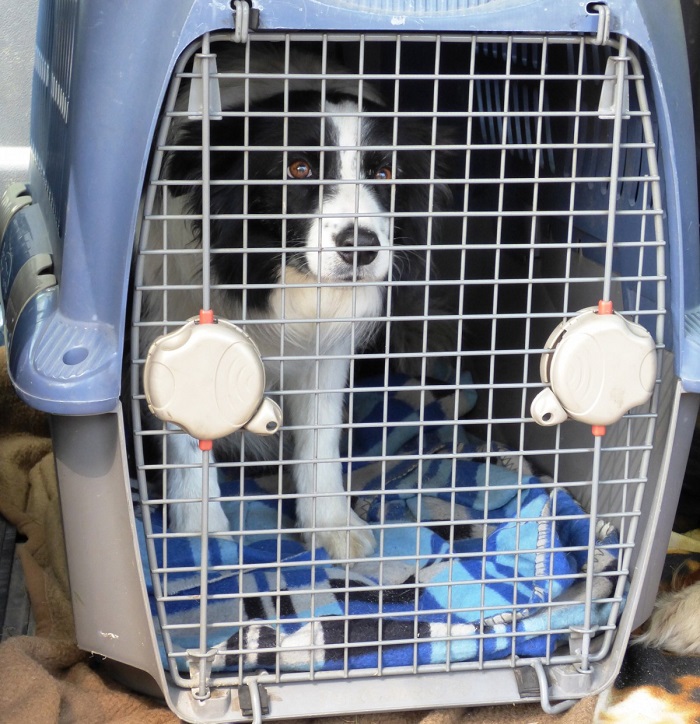
Legit breeds have a vaccination record to verify their puppies received their eight-week shots and have a complete set of veterinary health records from a certifiable vet clinic that a puppy mill dog won’t have.
Get a Health Travel Passport
All too often, people take on puppies that are taken from their moms much too early. If you’re importing a dog, you should know a puppy needs to be twelve weeks to qualify for a passport.
Puppies must wait for their rabies vaccination, which takes another 21 days. We know you’re anxious to get your puppy but start with the correct info.
Know the Laws Regarding Store Pet Sales

A few states have finally passed laws to end the sale of cats and dogs in stores. California, Maryland, and Maine made it illegal.
Washington is preventing new stores from selling pets though existing stores retain the right. Florida, Indiana, and Kentucky are working towards adopting bills that prohibit the sale.
Thanks to the HSUS and other advocacy organizations, many cities and other towns (375 and growing) now prevent the sale of puppies in pet stores. Other states like Arizona and Connecticut have bills that allow them to regulate stores.
However, these jurisdictions are up against lobbyists funded by giants like Petland to prevent these laws from succeeding.
Never meet a questionable “dog breeder” in a car park or other location or pay a deposit in advance. NEVER!
Buying a puppy from a puppy mill only perpetuates the cycle of cruelty. While you think you might save one puppy, the one with those adorable eyes, you end up sentencing millions of innocent dogs to a life of immense cruelty. Choose a reputable breeder.
Puppy Mills Red Flags
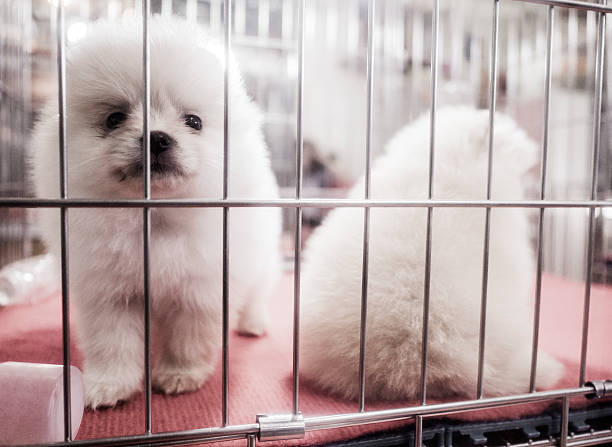
Reg flags from puppy mills wave in the wind and say, “Walk Away!”. If you live where a particular breed or designer breed isn’t available, you want to find a suitable breeder that isn’t a puppy mill breeder online.
Responsible and Legit Breeders Want To:
- Meet you, and for you to visit their facility, the puppy, and the parents.
- Interview you to make sure you are a good fit for their puppy.
- Ask you to sign a contract (not a bill of sale)
- Know how the puppy gets on and want updates should anything happen to the puppy. They want to make arrangements to have the puppy returned if any buyers can’t care for their dogs. (True story, I signed this agreement. It’s a lifetime commitment. Amen!)
- Spay or neuter the pet or introduce you to the world of champion show dogs and the ring.
- Promote their dogs’ health and temperament for a specific timeline that extends for months or years. It doesn’t expire after ten days.
- Send you the contract before you sign or deposit money.
- Microchip the puppy as soon as they can to help keep the puppy safe and potentially recover a stolen pet.
- Provide you with access to their vet but allow you to choose your professional vet clinic.
- Allow the puppy to choose you and vice versa. Pets have a tremendous amount of personality and instinct. You should be free to choose the puppy, though that isn’t always possible for popular breeds.
- Know that AKC papers are just a ploy these puppy farm breeders use to get your attention and make them seem legit. Find out why it’s important.
- Want to meet the breed standard with the new dog.
In life, we can’t like everyone we meet, but if you’re uncomfortable and there’s an instinct telling you that this “breeder” isn’t legit, walk away. Better yet, contact the HSUS or authorities if you know they’re operating a mill.
Puppy Mill Vs. Breeder Comparison Chart
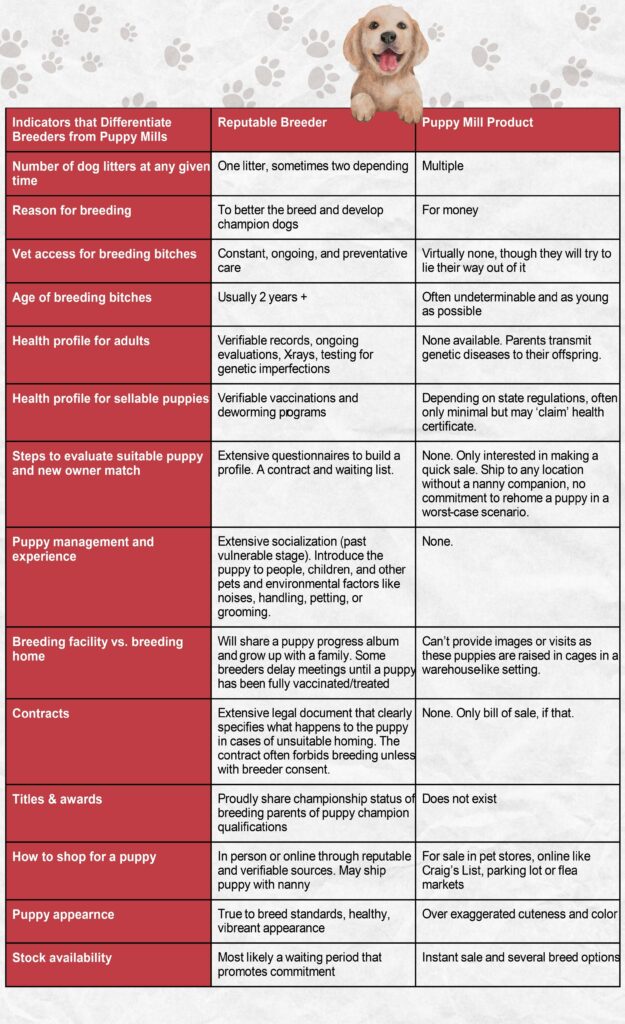
Tips To Help You Tell The Difference
It’s all a bit daunting and overwhelming. Choosing the right new puppy for your family is a momentous task, and we’re all exhausted from criminals that want to make a buck at every turn. There’s a scam a second.
But with a few helpful tips, you can find the breeder, and let us remind you many wonderful pets are waiting at your local shelter.
Where Are You Getting Your Puppy From?
The local chain store is sometimes a logical solution if you’ve never heard that some pet store chains willingly support the puppy mill market. Store puppies and kittens come from puppy mills.

No self-respecting legitimate breeder would consent to sell to a store, considering that these retail chains have a poor reputation and are harmful to breeding dogs.
Pedigree or legit designer mix breeders will have a website, good verifiable reviews, and will encourage you to visit their home.
Mill Brokers Make Excuses to Discourage On-Site Visiting
Mill brokers and pull mill owners are smooth-talking criminals who can spin a yarn of excuses for why it’s inconvenient for you to visit. If you can’t visit, it’s a bad place.
Some breeders might have a health concern with a new litter but will encourage you to meet the puppies later. You should always be welcome to meet the parents and siblings.
Not a Bill of Sale, But a Contract
Breeders promote their breed and aren’t in the business of selling dozens’ of pups in one go. Breeders promote their breed, look to create their dogs’ best features and temperament, and encourage you to commit to a contract.
Puppy mill owners breed dogs for money, and it’s questionable that they will even provide a bill of sale to puppy buyers.
If you get a receipt, it could be a fake piece of paper–don’t imagine that fake puppy mill breeders will claim their taxes.
How Do Breeders Ship Puppies?
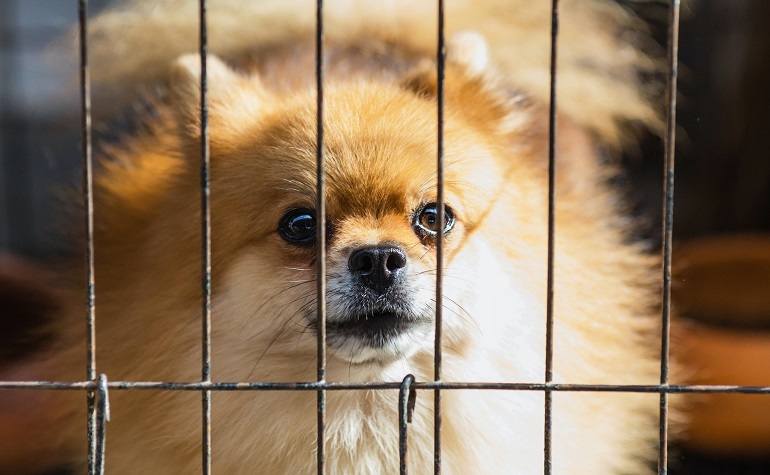
Reputable professional breeders encourage new owners to drive to pick up this precious cargo. While it’s not ideal, many breeders have pet nannies that will accompany the dog on air travel.
Remember, puppies are new to everything; sending them in a crate can be traumatic. Another option is to send the puppy with a pet courier service.
Remember, even if you get your puppy from a long distance, the drive is a great bonding experience for puppy buyers.
Temperament Matching the Pup

Many inexperienced pet owners overlook this vital fact and always fall for the cuteness trick (it’s the first test). Your dog should match your personality, introvert vs. extrovert, and lifestyle. If you’re sedentary, a Border Collier or Doberman Pinscher, or Vizsla pup is not for you unless you can commit to adapting your lifestyle.
AKC (American Kennel Club) Papers
Papers are important as it gives you an insight into the breed’s history. Most breeders ask you to sign a contract forbidding you from breeding or registering your puppies. However, some breeders might also recognize that the pup you chose would make excellent breeding stock and encourage you to breed with their consent (rare).
Puppy mill breeders won’t care what you do with the dog, and if you get AKC papers which are probably fake, they sell their puppies to anyone.
Professional Dog Breeder
A professional dog breeder specializes in breeding purebred dogs for various purposes. They are passionate about producing high-quality dogs that conform to breed standards and possess desirable traits. Good breeders prioritize the health and well-being of their dogs and are committed to providing them with the best possible care.
Buyers Should Always Visit the Breeder on Site
Being a purebred or designer breed owner is also a way to connect with the breeder and discover what is best for the dog. A professional, quality breeder often whelps their pups in the home, though some have facilities to house dogs. These facilities need to be clean, warm, and weatherproof.
Professional breeders will also have a million ribbons, trophies, diplomas, and photos of their dogs winning in the ring. They have an absolute passion for their dog breed and encourage visitors. Breeders want to meet you to see if you’re a good fit.
Puppy Mills Disguising Themselves as Professional Breeders
Of course, these puppy mill criminals have discovered how to look professional with fake photos of dogs, pedigrees, and fake website portfolios of their breeding facility. It takes a real detective to uncover the truth.
Knowing everything you can about the breed you’re interested in is an excellent way to test them. Another is to get their vet’s details and call them.
It’s buyer beware! (Most often, puppy mill breeders have brokers selling through pet stores or at flea and farmer’s markets. Or have classified listed online.
How to Find a Good Breeder
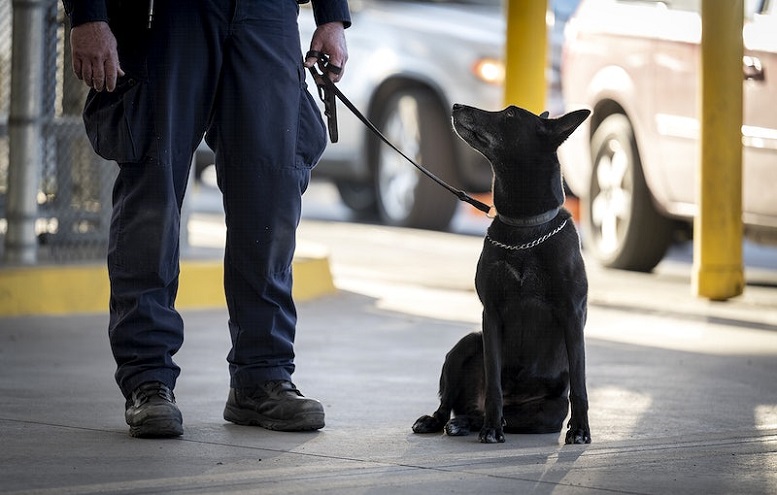
Finding a good dog breeder is crucial for getting a healthy and well-bred dog. A good breeder will prioritize the health and temperament of their dogs, and be willing to answer all of your questions.
Begin Your Research
Determine what type of breed is right for you. Then contact professional breeder associations or chat with vet clinic staff in your area about any leads for good breeders. A good breeder has a strong relationship with their vets.
High-quality breeds will be AKC registered. Local dog trainers or the BBB might help. Doing the legwork is critical. Check local shelters 🙂
Contact the State Agricultural Division
All states have different reasons for defining a puppy mill, depending on the number of active dogs they breed. Legit breeders are registered with state agriculture to protect puppy buyers.
The Selection Process

Popular breeders often have a lengthy waiting list and might require a commitment deposit. Once a new litter is born, most breeders encourage potential pup parents to interact with the puppies to find a match.
Breeders Registration With an Organization
Dog breeders are in it to promote the best of their breed and actively join dog clubs or show dog trials. Winning dogs sell for a higher fee but ensures the parents’ pedigree is carefully selected to develop the best.
Puppies Certified by a Vet
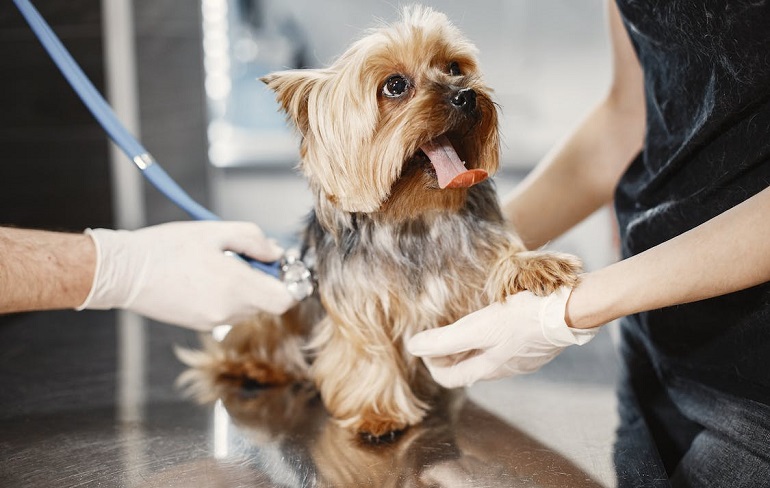
All puppies need to be examined by a veterinarian. Breeds like Bulldogs need cesarean births, so the vet should be intimately familiar with the breeding mom and its babies. Pups get vaccinated and dewormed. Good breeders will provide you with the documents so you can contact the clinic for veterinary advice.
Knowledge About Breed

Know the breed you’re interested in, what to look for, and what health concerns are common with each breed. The AKC is a good place to start. Chat on online forums and find out about health issues.
Dealing and Contract
Breeders want to engage with you. They want to know who their puppy is going with and that you are a perfect fit. Many breeders’ contracts have first right of refusal if you can’t keep the pooch for unforeseen circumstances.
A quality purebred dog or designer mix isn’t cheap. They cost upward of $500 to $3000 on average. Show-quality dogs will fetch a higher price. Puppies with minor aesthetic flaws like unusual fur or size might cost less.
What Are Grey-Zone Breeders
Grey-zone breeders fall between puppy mills and professional breeders and might breed for money vs. the breed’s perfection. Sometimes they’re called backyard breeders. They might not be bad people and genuinely like the breed.
Laws Surrounding The Puppy Mills
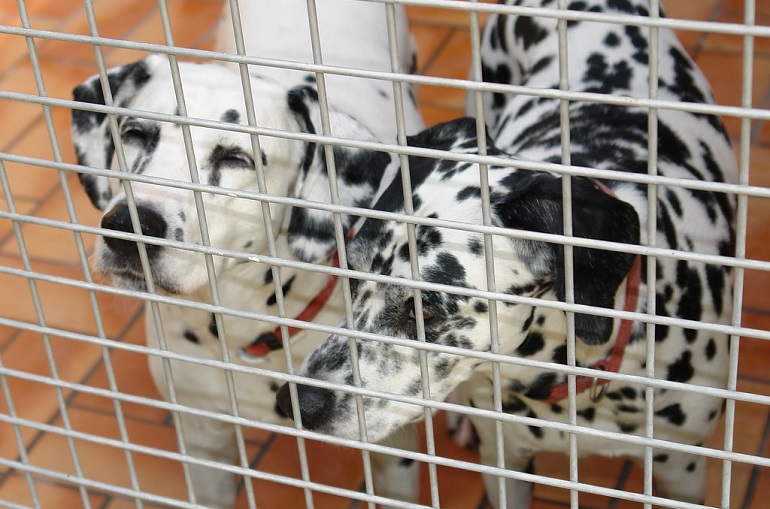
Laws surrounding many puppy mills are vague and vary from state to state. Breeders have minimum standards set out in the Animal Welfare Act (AWA), but there is no one to enforce the standards. Only breeders with four breeding bitches have to get USDA registration.
There are 10,000 licensed and unlicensed puppy mills in the US. Few USDA-licensed breeders suffer ill consequences for failure to meet guidelines (which are a joke). They seldom even get fined despite rescue group intervention.
How To Report a Puppy Mill

Puppy mills are challenging to find and often hidden in industrial areas or out on acreage where the noise of the dogs is seldom overhead. Even happy dog kennels make a ruckus.
Since the laws are vague about protecting dogs in puppy mills, don’t attempt to confront these puppy mill farmers. Instead, report them to local authorities and alert the HSUS.
How You Can Do To Stop Puppy Mills
The best and most challenging way to stop puppy mills is to walk away from that adorable face looking at you while you’re in Petland or see a classified ad. Support shelters and professional breeders instead.
FAQ’s
What Are Puppy Mill Dog Symptoms?
Dogs will display behavior problems like being overly shy (puppies are typically inquisitive). The puppy’s appearance might be lackluster, and have eye conditions or a distended tummy from parasitic infections. A new pup might have genetic disorders and many health problems.
How to Avoid Puppy Mills?
Education and research are your best tool to battle the puppy mill problem. Your instinct about shifty people works too. Don’t buy from Petland.
How Do Puppy Mills Work?
Puppy mills breed large volumes of dogs that in horrendous conditions. They use brokers to sell or auction these litters bred solely for money without concern for the puppy’s well-being.
Is It Okay to Work With Puppy Mills?
No. Never. Nein, Non, 不 نہیں. It only keeps the vicious cycle going. Walk away, even when it makes you very sad. Find a good breeder with a USDA health certificate and vet records before you bring a puppy home.
How Much Does a Puppy From a Breeder Cost?
Puppies can be expensive. Expect to pay between (on average) $500 and 3000. In-demand breeds can cost even more. Did you know that animal shelter dogs have a large percentage of purebred dogs?
Conclusion
It’s a real problem. Ten thousand puppy mill breeders are churning out over a million neglected and abused dogs for profit without concern for the pups, its mother, or the siblings. Or you, for that matter.
Read more about puppy mills and animal testing statistics to learn how your actions make all the difference.
At WAF, we continue to try and spread the word. We support the efforts of the HSUS and RSPCA and organizations that work toward the betterment of animals.


